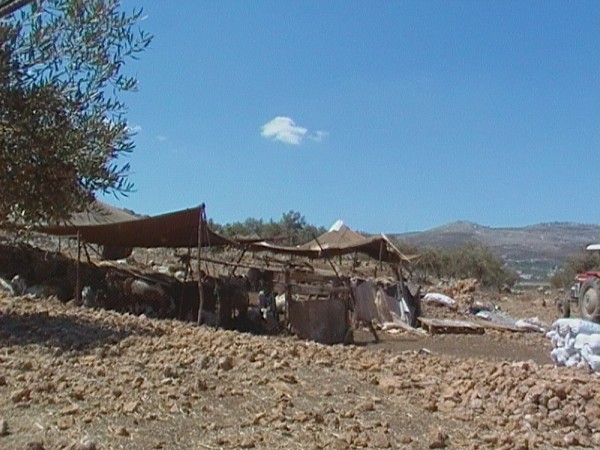31st July 2013 | International Solidarity Movement, Nablus Team | Huwwara, Occupied Palestine
In Huwwara, 9km south of Nablus there are two Bedouin families who have been living in tents with their animals since the start of June. They are usually camped near Hebron or in the Naqab desert, but for the summer they are based in Huwwara so the animals have room to move. They have had no problems thus far with the Israeli army from the neighbouring Huwwara military base or settlers whom drive up and down the road near their tents.

These two families, however are denied access to water by Israel. They do not have water to drink, wash or provide to their animals. Thus they are forced to travel over 1km with the tank in tow to go and buy water. According to a UN Humanitarian Factsheet on Area C of the West Bank, July 2011 “communities depending on tankered water pay up to 400% more for every liter than those connected to the water network”. Israel’s national water company, Mekorot holds a monoply over the water supplies providing almost half the water consumed by Palestinian communities effected, making a profit off the water shortages that are a result of the Israeli occupation.

Over 60 percent of the West Bank is considered Area C, therefore under full Israeli civil and security control, including planning and zoning and preventing any possible construction for water access. An estimated 150,000 Palestinians live in Area C, including 27,500 Bedouin and other herders. The discrepancy in water consumption between Palestinians and Israeli settlers in the West Bank is vast. Israelis, including settlers, have access to 300 liters of water per day, according to EWASH, while the West Bank average is around 70 liters, below the World Health Organization’s recommended minimum of 100 liters per day for basic sanitation, hygiene and drinking.
